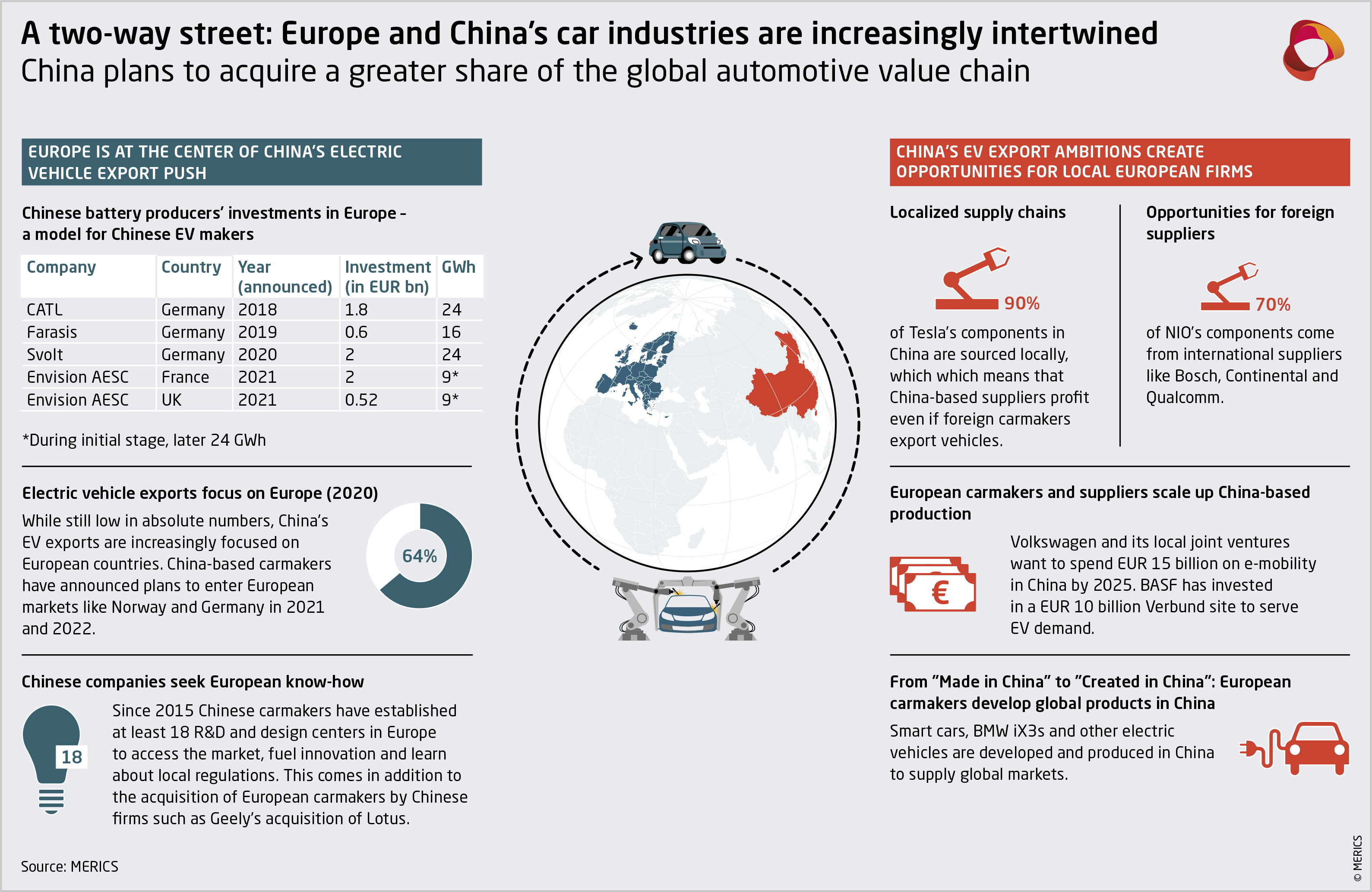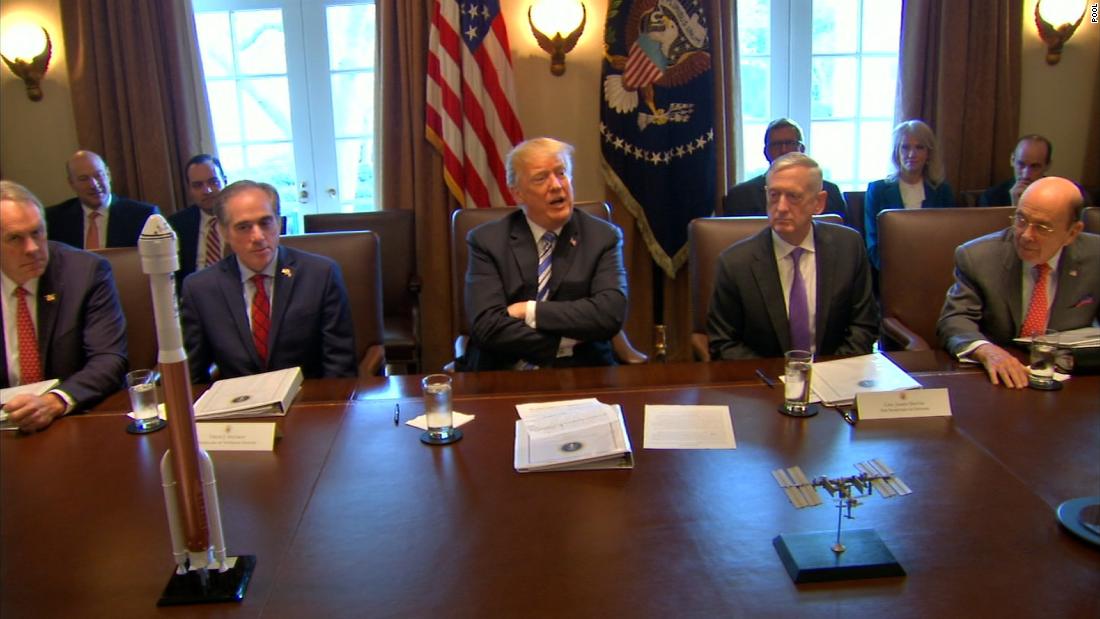China's Electric Vehicle Industry: A Global Challenge For America?

Table of Contents
China's EV Market Dominance: Factors Contributing to Success
China's rise as the world's leading EV producer isn't accidental; it's the result of a strategic, multi-pronged approach. Several key factors have propelled the nation to its current position.
Government Support and Subsidies
The Chinese government's unwavering commitment to EVs has been instrumental in their success. Extensive government support manifests in various ways:
- Substantial subsidies for EV purchases: These incentives significantly reduce the upfront cost for consumers, making EVs more accessible and attractive compared to gasoline-powered vehicles.
- Tax breaks and financial incentives for EV manufacturers: These policies encourage domestic production and innovation within the EV sector, fostering competition and technological advancement.
- Massive investment in charging station infrastructure: China boasts one of the world's most extensive public charging networks, addressing range anxiety – a major barrier to EV adoption. This includes both fast-charging and slower charging options, catering to diverse consumer needs.
- Stringent regulations promoting EVs: Policies like emission standards and mandates for government fleets to adopt EVs further stimulate demand and accelerate the transition to electric mobility. This creates a positive feedback loop, encouraging further investment and innovation.
Massive Domestic Market and Manufacturing Capabilities
China's immense domestic market provides a fertile ground for EV growth. Coupled with its established manufacturing prowess, this creates a powerful synergy:
- A vast consumer base driving demand: The sheer size of China's population translates into an enormous potential market for EVs, creating economies of scale that lower production costs.
- Established supply chains and cost-effective manufacturing: China has a mature and well-integrated supply chain for EV components, from batteries to motors, resulting in cost advantages compared to many other countries.
- Access to raw materials: China possesses or has access to significant reserves of many raw materials crucial for EV battery production, providing a strategic advantage in securing supplies. This reduces dependence on foreign sources and keeps production costs competitive.
Technological Innovation and Battery Technology
China is not only assembling EVs; it's actively investing in and developing cutting-edge EV technologies:
- Significant investments in research and development (R&D): Massive funding for research and development in battery technology and other crucial EV components ensures continuous innovation and improvement.
- Development of advanced battery chemistries: Chinese companies are at the forefront of developing next-generation battery technologies, including solid-state batteries, offering improved energy density, safety, and lifespan.
- The rise of domestic battery manufacturers: Chinese battery manufacturers are becoming global leaders, supplying batteries not only to domestic EV makers but also to international brands. This positions China as a key player in the global battery supply chain.
The Implications for the American EV Industry
China's ascendance in the EV market presents both opportunities and challenges for the American automotive industry.
Competitive Pressure and Market Share
The influx of competitively priced Chinese EVs into the US market is putting pressure on American automakers:
- Intense price competition: Chinese EV manufacturers often offer lower prices than their American counterparts, making them attractive to budget-conscious consumers.
- Innovative features and technological advancements: Some Chinese EVs offer advanced features and technologies that are not yet widely available in American models.
- Potential erosion of market share: American automakers face the risk of losing market share to aggressive Chinese competitors if they fail to adapt and innovate.
Supply Chain Dependence and National Security Concerns
The US reliance on China for certain EV components and raw materials raises concerns about national security:
- Dependence on Chinese rare earth minerals: These minerals are essential for EV battery production, and China controls a significant portion of the global supply. This dependence creates vulnerability to potential supply chain disruptions.
- Potential supply chain disruptions: Geopolitical tensions or unexpected events in China could disrupt the supply of crucial components, impacting American EV production.
- Concerns about intellectual property: There are concerns about the protection of American intellectual property in the context of collaborations with Chinese companies.
Job Creation and Economic Impact
The contrasting performance of the EV sectors in the US and China has significant implications for employment and economic growth:
- Potential job losses in the US auto industry: Increased competition from Chinese EVs could lead to job losses in American factories and related industries.
- Job gains in Chinese manufacturing: The growth of China's EV industry has fueled job creation in manufacturing, research, and related sectors.
- Impact on related industries: The ripple effects extend to industries such as battery production, charging infrastructure development, and related supply chains.
Potential Responses from the US: Strategies for Competing Effectively
The US needs a proactive and comprehensive strategy to address the challenge posed by China's EV industry:
Government Policies and Investments
The US government can play a crucial role in supporting domestic EV manufacturing and innovation:
- Increased subsidies and tax incentives: More generous incentives can make EVs more competitive and stimulate demand.
- Investment in battery technology and charging infrastructure: Significant government investment in R&D and infrastructure development is crucial to bridge the gap with China.
- Support for domestic research and development: Funding for research and development in advanced battery technologies and other key EV components will foster innovation.
Strengthening the Domestic Supply Chain
Reducing reliance on China for critical EV components and materials is paramount:
- Reshoring manufacturing: Bringing production back to the US will create jobs and enhance supply chain resilience.
- Strategic partnerships: Collaborations with allied countries can diversify supply chains and reduce dependence on China.
- Development of domestic sources of critical minerals: Investing in domestic mining and processing of raw materials will enhance security and reduce reliance on foreign sources.
Fostering Innovation and Technological Leadership
US companies must maintain technological leadership in the EV sector:
- Investment in research and development: Continued investment in R&D is critical to developing next-generation EV technologies.
- Collaborations with universities and research institutions: Partnerships between industry and academia can accelerate innovation.
- Focus on next-generation battery technologies: Developing advanced battery technologies, such as solid-state batteries, is crucial for maintaining a competitive edge.
Conclusion: Addressing the Challenge of China's Electric Vehicle Industry
China's rapidly expanding electric vehicle industry presents a significant challenge to America's automotive sector. The factors contributing to China's success – robust government support, massive domestic market, established manufacturing capabilities, and technological advancements – have created a formidable competitor. This poses serious implications for the US, including competitive pressure, supply chain vulnerabilities, and potential job losses. However, proactive strategies, including targeted government policies, supply chain diversification, and a strong focus on technological innovation, are essential for the US to compete effectively. Further research into China's electric vehicle industry and its implications for the global automotive landscape is crucial. We urge you to engage with this critical topic, fostering informed discussion and strategic planning for a sustainable and competitive future in the electric vehicle sector.

Featured Posts
-
 Kentucky Derby 2024 What You Need To Know Before The Race
May 05, 2025
Kentucky Derby 2024 What You Need To Know Before The Race
May 05, 2025 -
 Carney Trump Meeting Scheduled For Early Next Week At White House
May 05, 2025
Carney Trump Meeting Scheduled For Early Next Week At White House
May 05, 2025 -
 Betting On The Kentucky Derby 2025 A Deep Dive Into Chunk Of Gold
May 05, 2025
Betting On The Kentucky Derby 2025 A Deep Dive Into Chunk Of Gold
May 05, 2025 -
 Kentucky Derby 2025 Live Stream Where To Watch And How Much It Costs
May 05, 2025
Kentucky Derby 2025 Live Stream Where To Watch And How Much It Costs
May 05, 2025 -
 The Strategic Genius Behind Formula 1s Growth A Look At Stefano Domenicalis Leadership
May 05, 2025
The Strategic Genius Behind Formula 1s Growth A Look At Stefano Domenicalis Leadership
May 05, 2025
Latest Posts
-
 Emma Stone At The Oscars 2025 Sequin Louis Vuitton And Old Hollywood Glamour
May 05, 2025
Emma Stone At The Oscars 2025 Sequin Louis Vuitton And Old Hollywood Glamour
May 05, 2025 -
 16 Year Old Stepsons Death Stepfather Arrested Accused Of Murder Torture And Starvation
May 05, 2025
16 Year Old Stepsons Death Stepfather Arrested Accused Of Murder Torture And Starvation
May 05, 2025 -
 Emma Stones Show Stopping Oscars 2025 Dress Louis Vuitton Sequin And Retro Hairstyle
May 05, 2025
Emma Stones Show Stopping Oscars 2025 Dress Louis Vuitton Sequin And Retro Hairstyle
May 05, 2025 -
 Stepfather Faces Murder Charges In Stepsons Death Allegations Of Torture Starvation And Assault
May 05, 2025
Stepfather Faces Murder Charges In Stepsons Death Allegations Of Torture Starvation And Assault
May 05, 2025 -
 Oscars 2025 Emma Stones Daring Sequin Louis Vuitton Gown And Retro Pixie Cut
May 05, 2025
Oscars 2025 Emma Stones Daring Sequin Louis Vuitton Gown And Retro Pixie Cut
May 05, 2025
